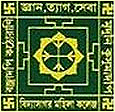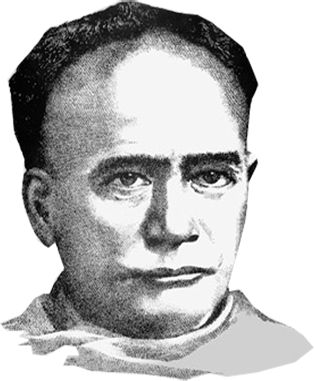History, Glory & Evolution
Vidyasagar College for Women grew out of Vidyasagar College, the foundation (in 1873) and evolution of which is integrally associated with the legacy of Pandit Iswar Chandra Vidyasagar (1820-91), a key figure of the Bengal Renaissance and one of the major architects of modern Bengal. Born in a poor Brahmin family in the village of Birsingha in Midnapur district, Iswar Chandra learned his numerals at the age of eight by counting milestones on his first journey to Calcutta (now known as Kolkata) to seek admission in an English-medium institution. The fees at Hindu College were too high for his father to pay, so Ishwar Chandra Vidyasagar was enrolled in Sanskrit College where he studied Sanskrit Grammar, Literature, Vedanta, Smruti and Astronomy, graduating in 1841. Due to his in-depth knowledge in Sanskrit and philosophy, he received the title “Vidyasagar” from Sanskrit College. In 1846, Vidyasagar joined the Sanskrit College as 'Assistant Secretary' and recommended a number of changes to the existing education system which, however, were not well-received. Consequently, Vidyasagar resigned and temporarily took up the position of head clerk at Fort William College. He joined the Sanskrit College again in 1849 as a professor of literature and was made the principal of the College in 1851. In 1855, Vidyasagar was appointed Special Inspector of Schools for the Districts of Hooghly, Midnapur, Burdman and Nadia. This motivated him to establish schools all over Bengal to spread the light of education. He also established 30 schools exclusively for girls. At a time when most homes across colonial Bengal subscribed to the belief that girls were only meant to stay indoors and perform household chores, Vidyasagar was chiefly concerned with the education of women, as he believed that only learning could help to make them independent and imbue them with self-respect and confidence in a society that was predominantly patriarchal and male-dominated. Vidyasagar also struggled hard to start the practice of widow remarriage in Bengal and proposed the Widow Remarriage Act XV in the year 1856. That he was a visionary far ahead of his times was demonstrated when he showed that the existing social practice of polygamy was not sanctioned by the conventional Hindu texts.
Appropriately, Vidyasagar considered the diffusion of a modern education to be the first milestone on the path of social progress, which alone would generate a humanism powerful enough to prevail over blind customs and rigid orthodoxy. His life’s mission was centred around the removal of ignorance, superstition and pernicious customs which held the human spirit in bondage. Vidyasagar saw in learning and knowledge the principle constructive medium for building a healthy society and strove to promote a creative harmony between education and social responsibility, between knowledge and social conscience.
A historical profile of the College: Vidyasagar College for Women, as a full fledged separate college affiliated to the University of Calcutta, was founded in 1960. However, the history of Vidyasagar College for Women goes back to 1st July 1931, when a separate Women's Section of Vidyasagar College was started, its classes being held in the morning. From that day onwards till June 1960, the curve of the Women's Section took a tumultuous route through change of premises, and even—during the Second World War—temporary closures; yet the journey was one of growth and success. The number of students grew from 75 in 1931 to 458 in 1940 and to 1189 in 1960, the year in which the Women's Section of Vidyasagar College was renamed Vidyasagar College For Women, situated at 39 Sankar Ghosh Lane, Kolkata: 700006. In course of time this campus of the college came to be called the First Campus of the College.
From the very inception, the authorities of Vidyasagar College for Women set before themselves the ideals which Pandit Iswar Chandra Vidyasagar had cherished: extending institutional education to increasingly wider sections of women coming from different socio-economic strata and effecting their social empowerment. The College offered both B.A. and B.Sc. streams with Honours courses in Bengali, English, History, Political Science, Philosophy, Economics, Geography, Physics, Zoology and Botany and General courses in Sanskrit, Hindi, Education, Chemistry, Physiology and Mathematics. In the first decade of the 21st century, the College upgraded 4 of the General subjects to Honours level (Hindi, Physiology, Chemistry and Mathematics) and obtained affiliation for 2 more General subjects, Electronics and Sociology. At the same time, the College authorities were exploring ways and means towards further expansion of the College. A significant step was taken in this direction when the College became associated with a movement of concerned citizens for restoring and renovating the residential house of Pandit Iswar Chandra Vidyasagar at Badurbagan (36/1 Vidyasagar Street, Kolkata: 700009) to its proper status and glory. With due recognition from the Department of Higher Education, Government of West Bengal, the said premises were handed over to the College in 1999-2000 with necessary back-up funds for its development so as to enable the College authorities to introduce their own job-oriented vocational courses for girls and build up the Vidyasagar Memorial Museum. The premises came to be known as the Vidyasagar Smriti Mandir (VSM), and duly acquired the status of a Heritage Building. The VSM is also a study centre of IGNOU. The VSM is called the Second Campus of the College. In 2014, Vidyasagar College for Women also acquired a Third Campus at 8A Sibnarayan Das Lane, Kolkata: 700006. The Third Campus houses the Central Library of the College, exclusive laboratories for the Science Departments (the laboratories in the Main Building are shared by the three Colleges), an air-conditioned staff room, an IQAC Room and ICT-enabled classroom, a modern computer lab and several classrooms.
Situated in a central region of the city and with over half-a-century of dedicated service to women’s education, Vidyasagar College for Women is a sought-after institution and caters to the needs of a large cross-section of students within the city and its adjoining districts. To equip students better to take up the challenges of a globalised world, the College constantly endeavours to upgrade her infrastructure. The laboratories of all the Science departments are equipped with computers, back-up accessories and departmental libraries while the Humanities departments have their own departmental libraries in the fully air-conditioned Seminar Library housed in the main building. Improving and upgrading the quality of teachers is one of the most important thrust areas of the College. The teachers are encouraged to acquire Ph.D. degrees through availing of F.D.P schemes of U.G.C, to undertake Major and Minor U.G.C research projects, and to organize and take part in national and international seminars etc. As far as the students are concerned, in addition to teaching-learning, the College also offers them opportunities for extra-curricular activities. Ex- students of the College are well established in almost all spheres of life such as education, politics, entrepreneurship, sports, cultural activities, social work etc.
It has been the persistent effort of Vidyasagar College for Women to be an integral part of the dissemination of higher education. Apart from training the students in discipline and order and educating them both in traditional values as well as in modern-day knowledge and use of technology, the College also tries to impart the appropriate value-orientation that will enable them to face the challenges of a globalized world and carve out their own dignified niche in society. The options of the College in designing her curricula are limited as the academic programs offered by the College are designed by Calcutta University. As the students of our College come from different social strata, the teaching and programs cater not only to the needs of the high-aspirant student group, but specific care is also taken to help those from low-income groups and disadvantaged sections. There are separate provisions in admission criteria for students from SC/ ST and OBC communities as specified by the CU and the State Government and such norms are duly followed by the College during admission to Honours and General courses.




